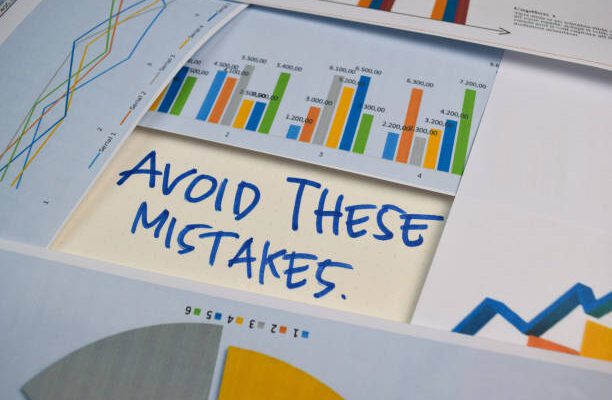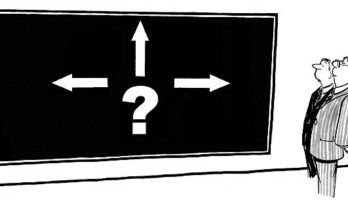You can create trust among your co-workers and enhance your own procedures by making mistakes at work. Additionally, it displays your professionalism to the rest of your team by showing them how you manage mistakes. You may prevent making the same mistakes again by learning how to address faults at work. With your team and determine their underlying causes. This will eventually reduce workplace errors that a person encounters.
This article covers what to do if you make a mistake at work as well as advice on how to avoid mistakes in the future.
 (Photo from istock)
(Photo from istock)
-
Following are a tips that will help you to correct your workplace errors:
Observe your feelings to reduce workplace errors
After making a mistake at work, it’s common to feel frustrated or embarrassed. It’s crucial to move forward and focus your energy on responding appropriately, though. To learn from the error and do better in the future, take a minute to let go of your negative emotions and embrace an optimistic outlook.
Accept the mistake
 (Photo from istock)
(Photo from istock)
Acknowledging the error in front of others as well as oneself demonstrates your professionalism. Be direct and forthright when apologizing to others for your error. Tell your management and your co-workers what happened so they can grasp the situation. As soon as you notice your error, tell your team colleagues so you have time to make the necessary corrections.
Offer an apology to avoid workplace errors
Genuinely apologizing to those who were impacted by your error serves several purposes. It demonstrates your honest contrition and acceptance of responsibility for the error. Additionally, it displays your regard for the individuals your error harmed. A sincere apology might aid in mending a positive connection if there were any unresolved negative emotions around the blunder.
Consider the cause of error
Consider how the error came about. By analysing the mistake’s root cause, you can more clearly see how your activities led to the outcome. And make future mistakes more obvious. For instance, if you presented a paper that contained spelling mistakes, you might infer that you lacked the time to proofread it. You now understand the importance of thoroughly editing your work before submitting it.
The mistake requires a solution to end workplace errors
 (Photo from istock)
(Photo from istock)
After that, it’s time to fix any issues that the error caused. Determine a remedy to any issues that arose as a result of the error, then provide your solution to any important stakeholders. This can entail working after hours or just personally apologizing to a client. Look for methods you may lighten your colleagues’ workloads if the error affected them and caused them to have to take on more work. Since you are demonstrating that you accept complete responsibility for mistakes, you can contribute to the development of trust in the workplace.
Plan your future
Consider what you could do differently the next time to prevent the error from occurring. Determine the issue and deal with it, whatever led to the error. To finish a project by the deadline, you can either start working on it earlier or schedule some uninterrupted time to work on just one project. Inform your managers of the solution so they can be assured that you’ve taken the necessary precautions to prevent making the same mistakes again.
Take care of yourself
Your level of mental, emotional, and physical health might affect how well you perform. Consider how you can look after yourself to ensure that you have the energy to concentrate on your work tasks after you’ve thought through how to correct your error. To be more alert and pay closer attention to detail, you may, for instance, schedule extra sleep. To reduce distractions, you might also try to draw lines between your personal and professional lives.
Demonstrate improved work to prevent workplace errors
Once the error has been corrected, demonstrate your improved work approach by taking appropriate action. Follow the new rules you’ve established for yourself to stop making the same mistakes. Share any techniques you find that are particularly effective with your co-workers so they might potentially benefit from them as well. Setting this example promotes increased communication, which can be helpful in identifying strategies to lower the likelihood of mistakes in the future.
-
Some tips to avoid workplace errors in future:
Pay full attention
Depending on your unique energy levels, schedule your day so that you are finishing your most important duties when you are feeling the most energized. Another strategy is to finish these duties throughout the day when people are least likely to annoy you.
Double-check your tasks
The more often you practice proofreading your messages before sending them via email, chat, or printing them out for others to read at a meeting, the more certain you may be that your communications are error-free. Double-checking is very crucial.
Formulate checklists
You can avoid mistakes by using a checklist, especially for more routine chores. Once you’ve established a process, make sure to adhere to the precise steps listed on your list each time you finish a task.
Careful revision
Check for errors after completing each activity or procedure, especially high-priority work. If you can, take a break from the project before you evaluate it one last time to help you spot mistakes more easily.
Breaks are important
For a greater chance of producing error-free work, take a break every 90 to two hours. To completely disengage from your obligations, try taking a break away from your desk.
Check your distractions
Put your phone away, dismiss any extraneous internet tabs, turn off email. Put any work-related communication apps in “do not disturb” mode when focusing on high-priority assignments. To help you stay on topic, keep a pen and notebook nearby so that you can jot down any side thoughts.
Questioning
Ask questions so you completely grasp your responsibilities when you start a new job or project. Your chances of making mistakes might be reduced by learning more about your responsibilities and the steps you want to take.
Create a schedule
Use a calendar that details everything you intend to do each day, week, and month to make sure you fulfil deadlines. You can even plan your hours so that you give each task the appropriate amount of time.
Reference:
Want to know how you should handle workplace conflict, click on the link below:
https://theperfectblogger.com/how-to-handle-workplace-conflict-or-stress/





3 Comments on “How to Correct Your Workplace Errors”